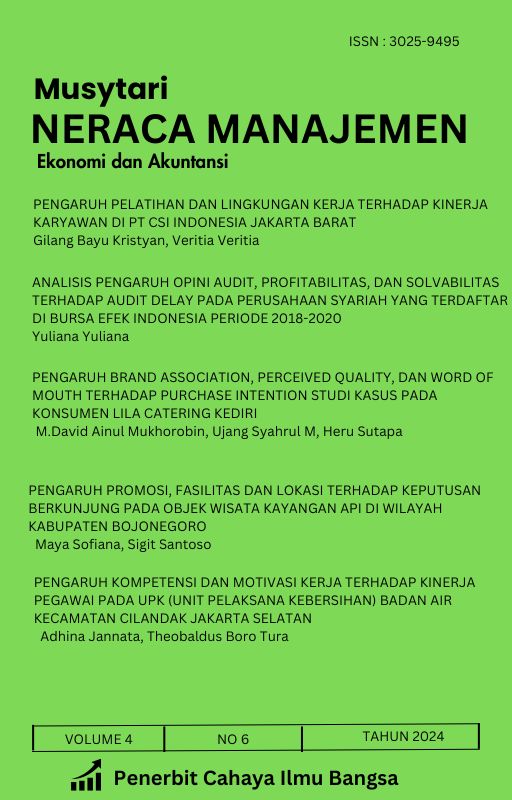Published 2025-06-22
Keywords
- Education Expenditure,
- Village Fund,
- Poverty,
- Fixed Effects Models
How to Cite
Abstract
This research aims to determine the influence of government expenditure in the education sector and village fund on poverty levels in East Java Province. This research uses a type of quantitative research with a panel data regression approach using the Fixed Effects Model (FEM). This research produces: 1) The Education Expenditure variable (X1) partially has a significant negative effect on Poverty (Y) in the districts of East Java Province. 2) The Village Fund variable (X2) partially has a positive but not significant effect on Poverty (Y) in the districts of East Java Province. 3) The variables Education Expenditure (X1) and Village Fund (X2) simultaneously have a significant influence on Poverty (Y) in the districts of East Java Province.
References
- [1] Abdullah, M. (2022). Effectiveness of Village Fund in Reducing Rural Poverty in Indonesia. Jurnal Kebijakan Publik, 15(2), 101–115.
- [2] Amartya Sen. (1999). Development as Freedom. Oxford University Press.
- [3] Arham, A., & Hatu, R. (2020). Evaluating Village Fund Policy for Rural Development. Jurnal Ilmu Pemerintahan, 10(1), 45–60.
- [4] Musgrave, R. A. (1959). The Theory of Public Finance: A Study in Public Economy. McGraw-Hill.
- [5] Ridwan, M., & Nawir, H. (2021). Pengaruh Pengeluaran Pemerintah terhadap Kemiskinandi Indonesia. Jurnal Ekonomi dan Pembangunan, 12(3), 233–245.
- [6] Taruno, H. T. (2019). Educational Spending and Rural Poverty: Evidence from Indonesia. Indonesian Journal of Economics, 9(1), 29–43.
- [7] Taruno, H. T. (2019). Educational Spending and Rural Poverty: Evidence from Indonesia. Indonesian Journal of Economics, 9(1), 29–43.
- [8] Wahyuddin, A., Hasan, R., & Maulana, A. (2019). Village Fund Management and Its Impact on Poverty Reduction. Jurnal Administrasi Publik, 17(1), 55–70. Townsend, P. (1979). Poverty in the United Kingdom: A Survey of Household Resources and Standards of Living. Penguin Books.
- [9]World Bank. (2020). World Development Report 2020: Trading for Development in the Age of Global Value Chains. World Bank Group.

